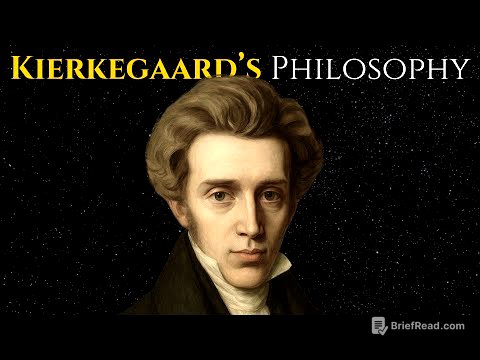TLDR;
The video appears to be a performance or theatrical production featuring historical and literary figures from Philippine history and literature. It includes characters like Lapu-Lapu, Francisco Balagtas, Florante, Laura, Aladin, and Andres Bonifacio. The performance incorporates elements of Filipino identity, patriotism, and resistance against Spanish colonization, with references to love for the homeland and the sacrifices made for freedom.
- Performance featuring historical and literary figures.
- Themes of Filipino identity, patriotism, and resistance.
- References to Spanish colonization and the fight for freedom.
Opening Scene [0:02]
The video begins with music and a scene that sets the stage for a historical or theatrical performance. The initial moments feature background music and indistinct speech, creating an atmosphere of anticipation.
Characters and Setting [0:41]
The performance introduces characters and alludes to the Spanish colonial period in the Philippines. References are made to historical figures and the impact of Spanish colonization.
Lapu-Lapu and Early Resistance [2:07]
Lapu-Lapu, a significant figure in Philippine history known for his resistance against Spanish colonizers, is mentioned. This segment highlights early Filipino resistance against foreign invaders.
Francisco Balagtas and Literary Figures [3:18]
Francisco Balagtas, a prominent Filipino poet, is introduced, linking literature with themes of love, betrayal, and power. The segment includes characters from Balagtas's famous work, "Florante at Laura," such as Florante, Laura, and Aladin.
Pedro Paterno and Filipino Identity [6:05]
Pedro Paterno, a Filipino politician, writer, and intellectual, is mentioned, emphasizing themes of justice and rights. This part underscores the importance of Filipino identity and the pursuit of freedom.
José Rizal and National Consciousness [7:35]
José Rizal, a national hero of the Philippines, is referenced, likely alluding to his role in awakening national consciousness and advocating for reforms during the Spanish colonial era.
Andrés Bonifacio and Revolution [10:36]
Andrés Bonifacio, a key figure in the Philippine Revolution, is portrayed as the "father of the Filipino nation" and the "supreme leader." His speech emphasizes love for the homeland and the willingness to sacrifice for its freedom. The segment includes a powerful recitation about the unparalleled love for one's country.
Sacrifice and Patriotism [11:31]
The performance highlights the sacrifices made for the Philippines, emphasizing the willingness to give blood, wealth, and life for the country's freedom. This section reinforces the themes of patriotism and national pride.
Closing Remarks and Gratitude [13:28]
The video concludes with expressions of gratitude and well wishes. The performers thank the audience and encourage them to take care.
![THE SPANISH ERA LITERATURE SHORT FILM 2024 [ROLEPLAY] [TAGALOG]](https://wm-img.halpindev.com/p-briefread_c-10_b-10/urlb/aHR0cDovL2ltZy55b3V0dWJlLmNvbS92aS9YdW5vSURRN0pJby9tYXhyZXNkZWZhdWx0LmpwZw==.jpg)








